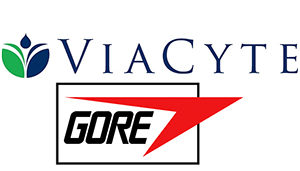 ViaCyte and W.L. Gore & Assoc. said today that they inked a co-development deal for the synthetic pancreas ViaCyte is developing to treat diabetes.
ViaCyte and W.L. Gore & Assoc. said today that they inked a co-development deal for the synthetic pancreas ViaCyte is developing to treat diabetes.
The San Diego-based company’s Encaptra device is designed to be seeded with stem cells engineered to become pancreatic cells and implanted under the skin. The newly created pancreatic cells generate insulin and other hormones about 3 months after implantation, which then pass through a semi-permeable membrane that blocks white blood cells to prevent an immune response against the implanted cells.
The deal with Gore is designed to improve the uptake of insulin and pancreatic hormones through the membrane by increasing its permeability. ViaCyte is launching a new program for a next-generation device called PEC-Direct, aiming to allow direct vascularization of the engineered pancreatic cells but without the immune protection aspects of its predecessor, PEC-Encap; patients using the new device would need to take immunosuppression drugs.
The companies established a joint development team for the project, of workers from both firms; financial terms were not disclosed.
“Gore has expertise in medical device development and drug delivery technologies, as well as previous research and development experience on cell encapsulation and implant programs for diabetes. We believe this collaboration represents a mutually beneficial relationship as the two teams cooperatively establish new methods of effectively delivering cell therapy to those with major unmet medical needs,” ViaCyte president & CEO Paul Laikind said in prepared remarks. “As ViaCyte advances our next-generation encapsulation technologies for cell therapies, Gore’s contribution to the material and design improvements of the Encaptra delivery system is expected to support the reliable and robust long-term engraftment that is required for the PEC-Encap product to be most effective. With Gore’s help, we plan to improve on the results we have seen with PEC-Encap, which would then have the potential of benefiting all patients with insulin-requiring diabetes, both Type I and Type II.”
“We have a proven track record of developing and commercializing innovative new materials and products to address challenging implantable medical device applications and solving difficult problems for biologics manufacturers. Gore and ViaCyte began exploring a collaboration in 2016 with early encouraging progress leading to this agreement, and it was clear to us that teaming up with ViaCyte provided a synergistic opportunity for both companies,” added Gore PharmBio Products technical leader Edward Gunzel. “The experience, expertise, and intellectual property that each of us bring to the table is highly complementary. We look forward to working with ViaCyte to develop novel implantable delivery technologies for cell therapies.”

